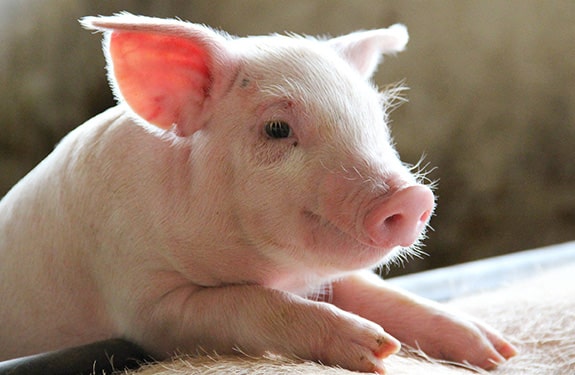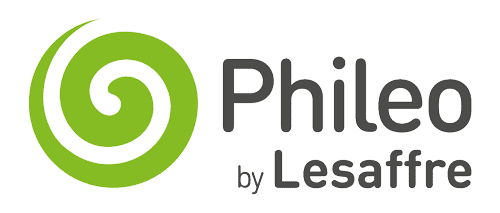13 Jun Transitioning to Zero ZnO: the role of sow nutrition
By Laia Batet, Technical Sales Swine Spain & Portugal and Caroline Brückmann, Technical Sales Germany, Phileo by Lesaffre

To effectively remove high ZnO levels in piglet diet requires a re-think of what the piglet eats, but also what we feed the sow. In part 7 of this article series, Laia Batet and Caroline Brückmann from Phileo explain the important role of sow nutrition to produce healthy and strong piglets.
Are Spain and Germany prepared for the ZnO ban?
Over the years, Spanish pig producers have done a great job in stepping up biosecurity, management, and health status on their farms to be less dependent on antibiotics. It is key to constantly improve now we must produce without ZnO. This requires extra attention when weaning at 25 days on average, a common practice for Spanish integration farms. I expect a transition time, but I am confident that the vast majority of pig farmers will fully adapt to this new situation. In Germany around half of the pig farmers used to apply ZnO every now and then in the piglet unit. Now that therapeutic levels of ZnO is not allowed anymore, we see more interest in the use of pro- and prebiotics and different fibre sources for example. I think German farmers will handle the ZnO ban, as they also made huge steps in antibiotic reduction already. More uncertain things such as volatile pork prices, the economic situation and African Swine Fever might be a bigger headache for German pig farmers now.
What is the role of sows for healthy piglets?
That’s a good question. When talking about the ZnO ban, we very much focus on changing the piglet feed formulation. But we know that investing in sows, in their nutrition, will directly impact their offspring, which already starts in the womb. What we feed the sows has effect on colostrum quality, piglet weight at birth and piglet weight at weaning. High quality and quantity of colostrum will ensure the right immunity (antibody) and energy boost for the piglets. Sow nutrition therefore has a great role to play to produce healthy, strong piglets and to reach the right weaning weights and uniform batches.
What about gut health transfer from sow to piglet?
Gut health is very important when raising piglets without antibiotics or high levels of ZnO. A healthy gut (healthy and stable microbiome amongst others) prevents proliferation of pathogenic bacteria, inflammation of the epithelial wall and enteric diseases. Piglets inherit gut health from their mothers. Studies have shown that the microbiome of a sow leaves a blueprint on the piglet, in terms of pathogens present, but also the beneficial microorganisms (which is what we want!). All in all, through nutrition of the sow, we can modify and improve gut health of our sows, which will be translated to a healthier microflora and better immunity in the piglets. Besides proper nutrition, the sow’s body condition is also important. Now, the minimum weaning age is 21 days, but a lot of farms have already switched to 28 days. This will allow the sow for some time to get back in shape and be prepared for the next cycle and a new litter of healthy and strong piglets.
What can Phileo’s solutions do for sows?
Supplying yeast probiotic Actisaf® supplements in sow gestation and lactation diet has a positive effect on the microbiota of piglets and shows a reduced presence of pathogenic bacteria E. coli and Clostridium in the piglet’s gut. Reducing these types of bacteria is crucial, as these are causing most of the enteric problems in piglets. Actisaf also increases the immune quality of the colostrum (increased levels of IgG and IgA when supplemented before parturition). It also elevates fibre digestibility, which will result in the higher milk production. When Actisaf® is given directly to piglets, it will continue to have a positive effect on the microbiota and decreases the risk for inflammation. Our yeast postbiotic Safmannan® helps to strengthen tight junctions and the mucus barrier on the piglet’s gut. It also prepares the immune system of young animals, so the immune cells can act faster and sooner when facing a challenge. For cases, where certain pathogens (E. coli, Salmonella, Clostridia) are detected, it might be a good idea to add Safmannan® to boost the pathogen-binding effect of Actisaf®.
What is your take home message?
The European ZnO ban is a challenge for pig producers. However, we see that most pig farmers already made huge improvements in management and feeding. Sow nutrition is crucial to raise healthy and good quality piglets. Healthy and strong sows simply produce healthy and strong piglets. Feed additives that positively modulate the immune system and microbiome are the key to give piglets the extra boost and increase sow health, colostrum quality and kilograms of milk produced. A win-win for sows and piglets.
Program Zero ZnO
Phileo has developed the Program Zero ZnO to bring solutions to pig farmers to successfully make the transition to zero (therapeutic) zinc. The program focuses on 3 pillars that include: strengthening the microbiome, reducing pathogen pressure and enhancing feed intake.







Sorry, the comment form is closed at this time.